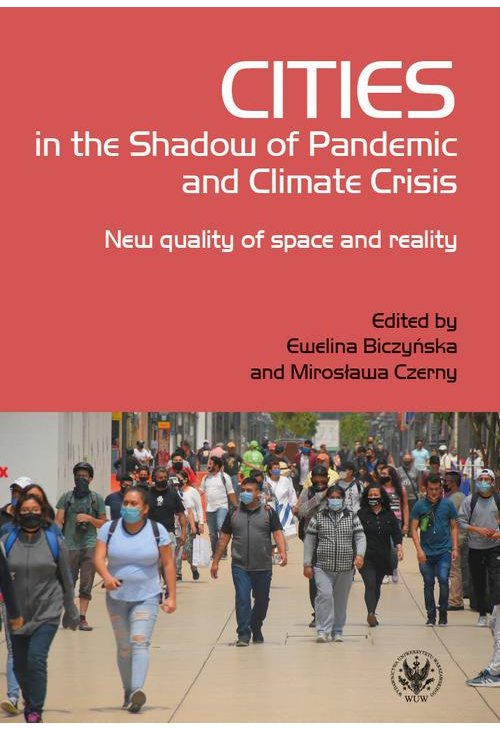
- Za darmo
ebook Cities in the Shadow of Pandemic and Climate Crisis New quality of space and reality
Odkryj fascynujące perspektywy na miasta dotknięte kryzysami i ich adaptację w innowacyjnej monografii "Cities in the Shadow of Pandemic and Climate Crisis". Ta publikacja, wydana w 2024 roku przez Wydawnictwa Uniwersytetu Warszawskiego, składa się z artykułów napisanych w języku angielskim przez wybitnych naukowców z Polski i Ameryki Łacińskiej.
Autorzy ebooka badają różnorodne konsekwencje pandemii COVID-19 oraz kryzysu klimatycznego, analizując ich wpływ na rozwój miejski i jakość życia. Monografia uwypukla kluczowe strategie adaptacyjne miast w Europie i obu Amerykach, podkreślając zarówno uniwersalność, jak i różnorodność podejmowanych działań.
W ebooku poruszane są istotne tematy takie jak: miejska polityka przestrzenna, rolnictwo miejskie, zieleń w miastach, koncepcje rozwoju oparte na funkcjonalnym miksowaniu, przyjazności dla pieszych i nowym urbanizmie. Autorzy wykorzystują różnorodne metody badawcze, łącząc perspektywy z Polski i Ameryki Łacińskiej w unikalny sposób.
"Cities in the Shadow of Pandemic and Climate Crisis" to nie tylko akademickie studium nad miastami, ale także praktyczne źródło inspiracji dla urbanistów i decydentów miejskich na całym świecie. Dostępny w formacie PDF ebook oferuje wygodę czytania zarówno online, jak i offline.
Zaangażuj się w dyskusję o przyszłości miast w obliczu globalnych kryzysów, pobierając ten ebook ze sklepu z ebookami lub kupując go bezpośrednio. To doskonała lektura dla pasjonatów literatury pięknej i najnowszych badań miejskich, a także dla tych, którzy poszukują najlepszych ebooków na rynku.
Pobierz teraz "Cities in the Shadow of Pandemic and Climate Crisis" i odkryj, jak miasta radzą sobie z wyzwaniami współczesności, przygotowując się do kolejnych kryzysów oraz dążąc do budowy lepszej przyszłości.
Spis treści ebooka Cities in the Shadow of Pandemic and Climate Crisis
Introduction 9Ewelina Biczyńska, Mirosława Czerny
I. The pandemic and the urban space
The SARS-CoV-2 coronavirus pandemic and the city’s
spatial policy directions 19
Sylwia Dudek-Mańkowska, Mirosław Grochowski
Active recreation as leisure activity of inhabitants
of large cities in Poland during the COVID-19
pandemic. An attempt at a qualitative approach 37
Małgorzata Durydiwka, Renata Krukowska, Alina
Zajadacz
Habitability and gastronomic gentrifi cation of
public space in the times of COVID-19. The case of La
Condesa neighbourhood in Mexico City 64
Alberto Javier Villar Calvo, Yadira Contreras Juárez,
Luis Arturo Cruz García
The impact of the COVID-19 epidemic on the change of
Warsaw information layout illustrated by the examples
of the PGE Narodowy Stadium and the tenement house at
37 Tamka Street 95
Jan Zygmunt Kowalski
II. Designing cities for people
The concept of the compassionate city as a response
to the demographic and social challenges of European
cities. A comparative analysis of Berlin and Warsaw
113
Jan Goliński, Wojciech Dziemianowicz
Physical barriers constraining walkability in cities.
Case study of Warsaw, Poland 137
Karolina Sitnik
Functional mix on a city scale. Case study of Warsaw,
Poland 151
Maciej Misztal
“Welcome to the park!” – Management and promotion of
urban green spaces through the lens of local
government social media 167
Sylwia Kulczyk, Kacper Kuzak, Tomasz Grzyb
Development of cities, the right to the city, and
governance, as exemplifi ed by Villavicencio,
Colombia 180
Mirosława Czerny
Building social capital through climate change
mitigation based on the example of Warsaw, Poland 193
Michelle Mbazuigwe
New Urbanism in assessing sustainability of Polish
and American suburbs 206
Dorota Mantey
Possibility of implementing the Barcelona Superblocks
model in the post-COVID-19 city. Refl ections on
Latin America 231
Maciej Kałaska
III. Contemporary urban processes
Fragmentation, segregation, and governance in rural
urbanisation through housing developments in
Calimaya, Mexico 247
Alan Noe Jim Carrillo Arteaga, Brian Eric Carrillo
Arteaga, Ruth Moreno Barajas
Social representations, public space, and consumption
in the city of Metepec, State of Mexico, Mexico 260
José Juan Méndez Ramírez, Teresa Becerril Sánchez
Understanding ‘outstanding’: An urban-rural cultural
landscape facing tourism development. Case study of
Salento, Colombia 276
Sonia Uribe, Sylwia Kulczyk
The city of La Plata – its development against the
background of European ideas of ideal cities of the
nineteenth century 301
Agnieszka Dudzińska-Jarmolińska
IV. The crisis and the response
Urban agriculture as an element of mitigation-
adaptation strategy: a response to climate and food
crises 319
Ada Górna
Towards the construction of a territorial human
development index. An approach from the metropolitan
perspective 332
Mónica Guadalupe González Yñigo, Arturo Venancio
Flores
Workers’ adaptation strategies in a highly informal
labour market during the COVID-19 pandemic. The case
of Metropolitan Lima 344
Agnieszka Olter-Castillo, Jose Enrique Castillo
Sanchez
Mexico and social vulnerability to fl oods in 2020
375
Luis Alberto Olín Fabela, Fermín Carreño Meléndez
Impact of internal armed confl icts on tourism in
urban centres, a context analysis 389
Salvador Gerardo Gonzalez Cruz, David Horacio García
Waldman, Hernando Castro Garzón
COVID-19 pandemic and geographic space in Mexico. A
perspective of differences in comorbidities by sex
398
Giovanna Santana Castañeda, Rebeca Angélica Serrano
Barquín, Marcela Virginia Santana Juárez
Szczegóły ebooka Cities in the Shadow of Pandemic and Climate Crisis
- Wydawca:
- Wydawnictwa Uniwersytetu Warszawskiego
- Rok wydania:
- 2024
- Typ publikacji:
- Ebook
- Język:
- angielski
- Format:
- epub mobi pdf
- Redakcja:
- Mirosława Czerny
- Liczba stron:
- 420
- Miejsce wydania:
- Warszawa
- ISBN dla wersji papierowej:
- 9788323562986
Recenzje ebooka Cities in the Shadow of Pandemic and Climate Crisis
-
Reviews (0)

Na jakich urządzeniach mogę czytać ebooki?
- Za darmo


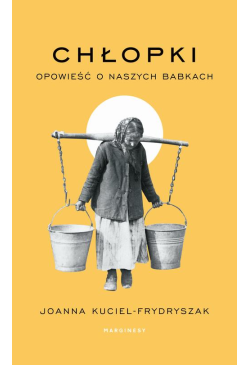

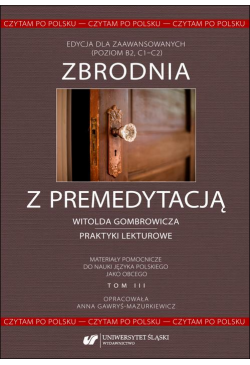
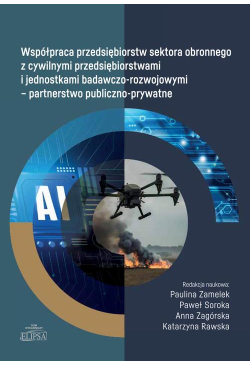
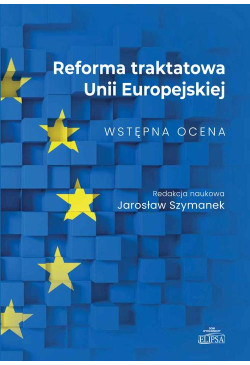
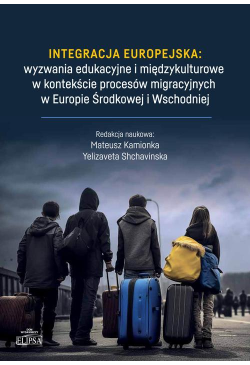
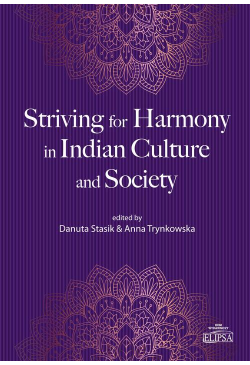

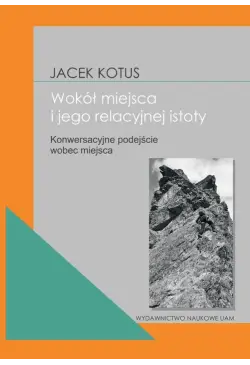
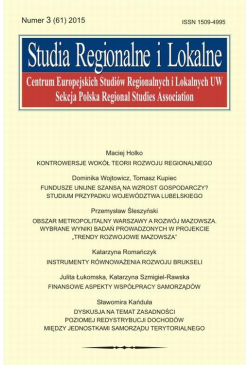

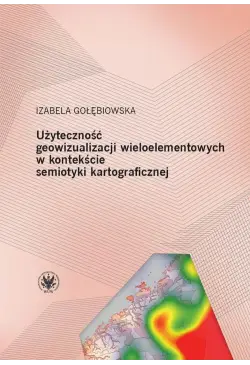
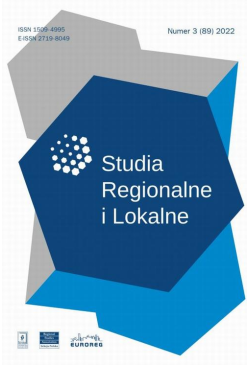
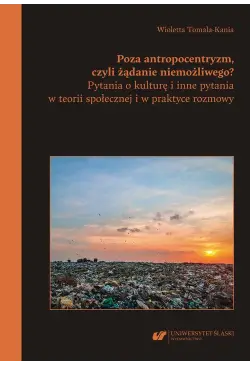



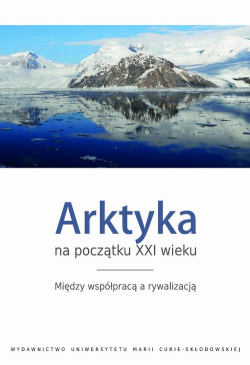

@CUSTOMER_NAME@
@COMMENT_TITLE@
@COMMENT_COMMENT@